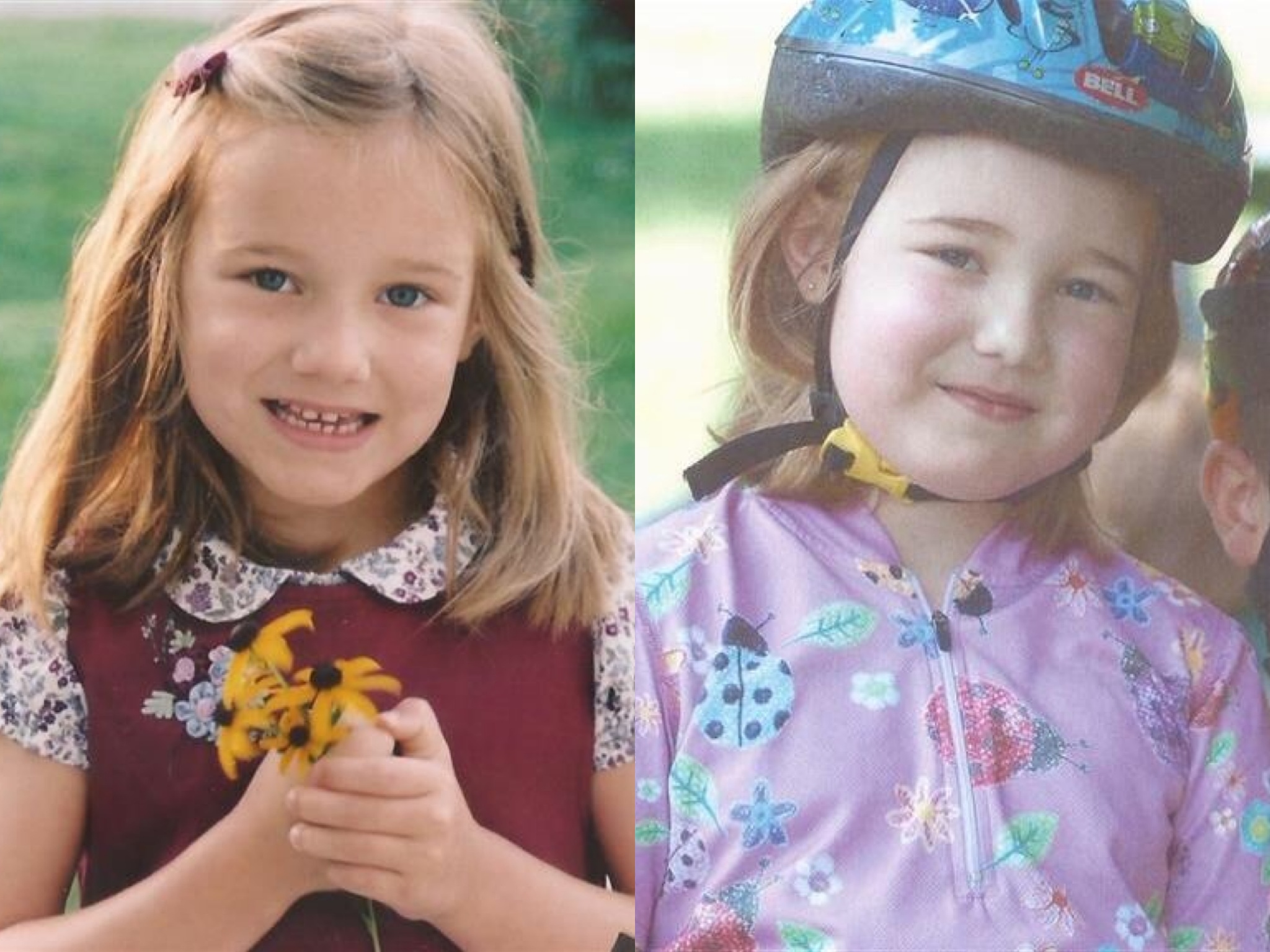When schools are no longer session, NephCure Kidney International opens its doors to fresh, new faces for internship opportunities. It’s standard protocol to not only give these students professional work experience, but to make sure they understand the struggles that come along with a Nephrotic Syndrome diagnosis.
But this year, two of our interns already knew about these struggles firsthand. Both Peyton Azar and Beau Gent are patients diagnosed with rare, protein-spilling kidney diseases, and they’re both striving to make a difference in the lives of others.
When Peyton Azar was eight years old, she began waking up with puffy, swollen eyes. At first, doctors believed the swelling was due to allergies, but various allergy treatments and the change of seasons failed to improve her symptoms. After a few months without relief, her doctors ordered a urine test; when protein was detected, they took swift action.

“They took me to the children’s hospital in Pittsburgh the next morning, and then everything after that was kind of, I guess, my new life in a sense,” Peyton said.
She was diagnosed with focal segmental glomerulosclerosis (FSGS), and since then has embarked on the long, up-and-down journey of living with a chronic kidney disease.
“Since FSGS is more of a rare disease, I’ve kind of been a guinea pig for a lot of things. I’ve been in a lot of clinical studies and things of that nature,” she said, adding that her treatments have been on the intense side.
She went into remission for a few years after her diagnosis but relapsed in seventh grade and underwent Prednisone infusions. The steroids helped, but not entirely; though her symptoms weren’t horrible, she wasn’t necessarily in remission.
Then, when Peyton was 15, her kidneys began to fail. She went on dialysis, and in July 2015, the summer after her sophomore year of high school, she received a kidney transplant, with a kidney from a special living donor: her mother.
But soon after the transplant, her kidneys unfortunately failed again—the FSGS was attacking once more.
In yet another effort to combat the disease, Peyton began plasmapheresis, which helped her move into remission after a few months of treatment. In the four and a half years since then, she hasn’t experienced a single relapse.
“I definitely don’t feel as normal as the average person would,” she expressed. “I definitely get fatigued easier, and sometimes my transplant site will hurt. I also get migraines a lot and have stomach issues from my medications. So, it’s definitely not normal, but it’s a lot better than pre-transplant.”
Peyton is a rising senior at West Virginia University, and explains that within the last year, she has developed a much clearer picture of the career path she wants to take: working with a health organization, ideally in a patient advocacy role.

“I would love to be a part of something that makes a difference,” she said, adding although she’s hoping to work in the healthcare field, she’s also open to joining a nonprofit with a focus other than healthcare—just as long as she’s helping people.
Peyton refuses to let her disease dictate her life or dampen her aspirations.
“I feel like so many people with health issues think ‘Why me? Why did it happen? Why do I have this?’” she said. “But I think a big one for me is ‘Okay, I have this. What can I do with it?’ I don’t want to just sit down and take it, I guess. I want it turned to something positive and have it strengthen my character.”
While Peyton is interning with NephCure’s Department of Research and Engagement, Beau Gent, another Nephrotic Syndrome patient and summer intern, is working with the Community Development team. A rising junior at Regis University in Denver, Beau’s kidney health journey has been a winding one.
At 13 years old, Beau was diagnosed with lupus. Although his health was relatively stable throughout his high school career, he experienced harsh flare-ups during his freshmen year of college. His doctor ordered blood work and found a concerning creatinine level. Shortly after, he was hospitalized and received a new diagnosis.

“I was then diagnosed with lupus nephritis because my lupus had then started attacking my kidneys, and then from there it kept on progressing,” Beau explained.
He was 18 years old at the time.
“At one point they thought that they were going to be able to salvage my kidneys,” he said, describing how he underwent a multitude of immunosuppressant treatments, including a round of steroids and then chemotherapy—neither treatment helped.
After his freshmen year, with little improvement, Beau received a third diagnosis: end-stage renal disease.
“I haven’t been through this whole kidney journey as long as many other people, but it came extremely fast, and it was tough,” he explained.
In July of 2019, less than a year after he was diagnosed with lupus nephritis, Beau started dialysis.
“I spent my entire sophomore year on dialysis, which was a time and a half, to say the least. I would go to classes in the morning, and then in the afternoon I would go to dialysis. So, I’d start my day around 7:00 in the morning and I’d end my day at 8:00 or 9:00 at night,” he said. “It wasn’t ideal, but it was a necessary thing, and thankfully I was able to make it work.”
In April 2020, Beau underwent a kidney transplant, and, like Peyton, received a kidney from one of his parents. Beau’s living donor was his father, and since the transplant, he’s improved tremendously. Though his doctors haven’t specifically declared he’s in remission, the results of his blood work and other appointments have been encouraging.
“I’ve been leaps and bounds better,” he said. “I feel absolutely amazing.”
For Beau, who enjoys weightlifting, the hardest part about dialysis was being unable to gain any weight or muscle mass.

“Once I got on the dialysis and they were taking all that water weight off, I was like a string bean,” he laughed. Six weeks after his transplant, he was able to begin lifting weights and hiking again, which he describes as ‘a huge blessing.’
Beau’s intern position with NephCure isn’t the first time he’s been involved with the organization. Last year, his mother entered an essay writing contest sponsored by NephCure, and she and Beau were selected to travel with the team to lobby government officials in Washington, D.C.
Like Peyton, Beau also wants to dedicate his career to helping others. His goal is to become a physician’s assistant, specifically in the pediatric field, and he says he might even want to go into nephrology.
“I’ve gotten to talk to a lot of amazing healthcare professionals, and I’ve gotten to talk to some not so amazing healthcare professionals, and kind of learn things that I would like to change in the system, and learn things that I would like to keep in the system,” Beau said. “I think that that is definitely an interesting perspective that you can have as a patient kind of going into a healthcare profession yourself, because you know it firsthand.”

Though he was quickly forced into a life of serious kidney disease on top of an autoimmune disorder, Beau doesn’t let his illnesses define him.
“My goal has always been to make people think that I’ve never been sick,” he said. “I want to work ten times harder than the healthiest person around, being that it’s okay for my health personally.”
Beau and his mother have a motto they live by to help push them through the hard times: “no wasted days.” Living with chronic illnesses means every day has the potential to be a challenge; Beau makes a conscious effort to truly appreciate the days that aren’t so tough.
“If you’re given a day where you don’t feel absolutely terrible and you can do a little bit, or you can push yourself a little bit more, take advantage of it,” he said. “Because you don’t know if the next day you’re going to feel terrible again and can’t get out of bed.”
Both Beau and Peyton have already greatly contributed to the team. Their presence is an appreciated reminder of the strength and resiliency Nephrotic Syndrome patients possess, and NephCure is looking forward to their continued collaboration.